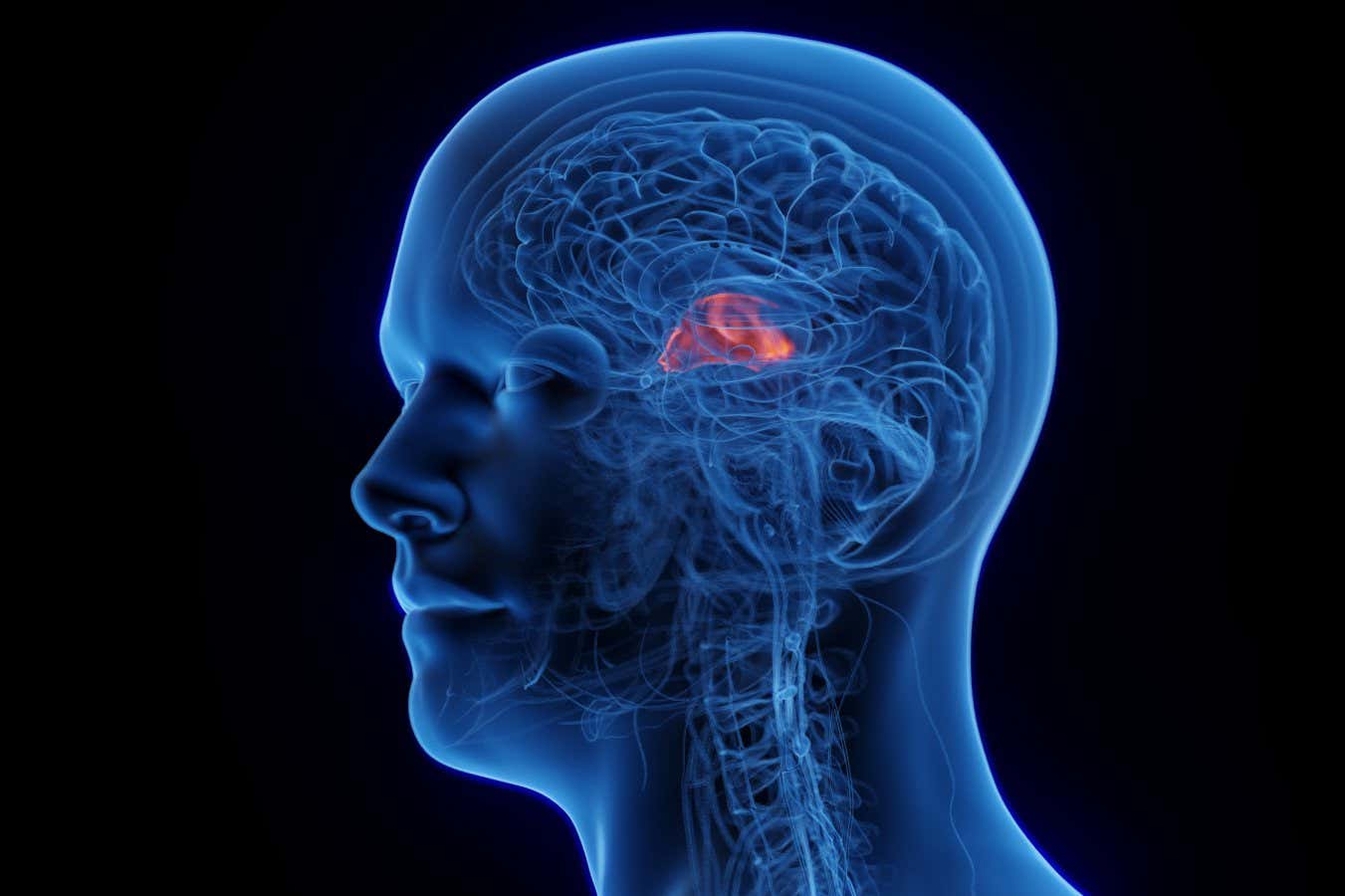A device that was implanted into the brains of people with traumatic brain injuries substantially improved their cognitive function a year later, a small study suggests
By Chen Ly
4 December 2023
The device was implanted into the thalamus (highlighted), a region deep in the brain that is linked to alertness, learning and memory
SEBASTIAN KAULITZKI/SCIENCE PHOTO LIBRARY/Getty Images
An implant that stimulates a region deep in the brain may boost cognitive function in people with traumatic brain injuries long after the incident occurred. This is based on the results of a small study, which was primarily carried out to assess the device’s safety, with further research required.
Read more
We may finally know how cognitive reserve protects against Alzheimer's
A major blow to the head, due to a car crash, for example, can result in a traumatic brain injury (TBI). In mild cases, this may temporarily affect someone’s brain cells, but in more severe incidents, the individual can have long-term emotional, physical, cognitive and behavioural impairments.
Advertisement
“One of the major problems is that there really are no effective therapies for traumatic brain injury,” says Jaimie Henderson at Stanford University in California.
Read more
Brain implant lets man with paralysis move and feel with his hand
In an attempt to combat this, Henderson and his colleagues developed an implant that could stimulate the thalamus – a region deep in the brain that is linked to alertness, learning and memory – to see if this could revive cognitive functions in those with TBI.
